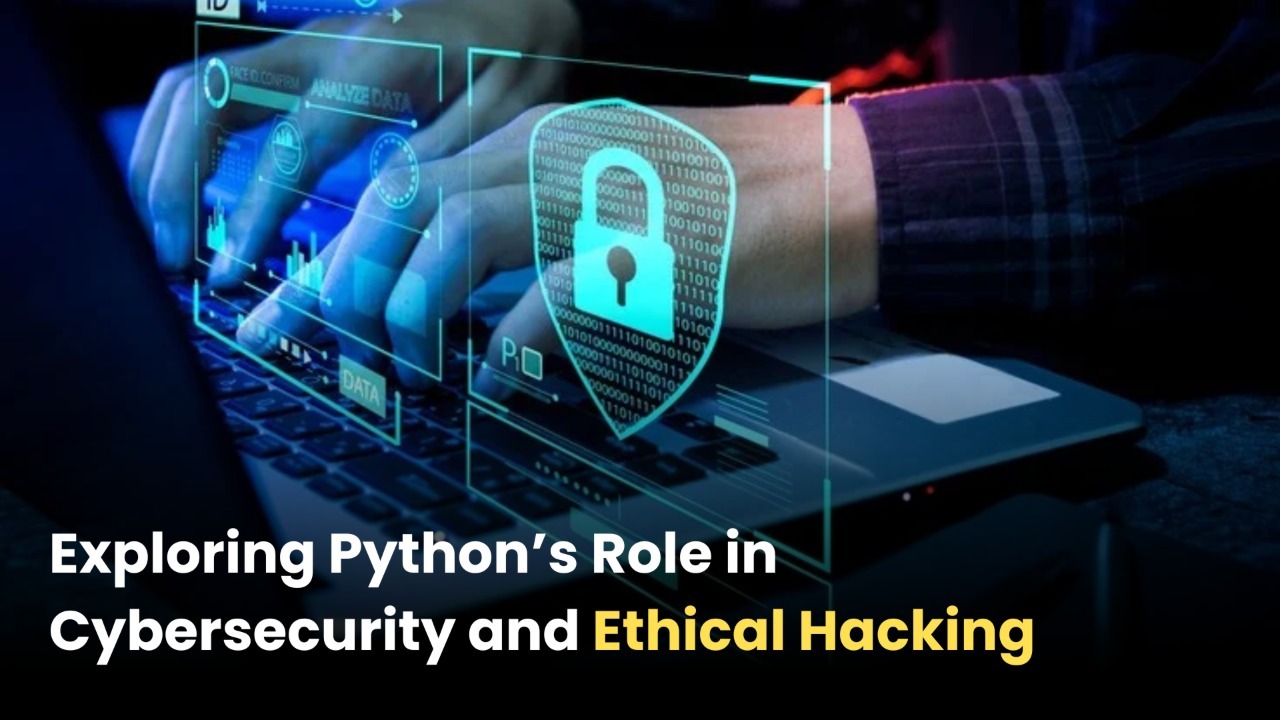In the ever-evolving tech landscape, one programming language continues to stand tall as a gateway to innovation, automation, and lucrative job roles: Python. For over three decades, Python has steadily grown from a beginner-friendly scripting language into a powerful force that underpins the digital economy. Python is more than simply a tool as we enter the next ten years; it’s a career accelerator.
Whether you’re an aspiring developer, a data scientist in training, or a mid-career professional looking to upskill, understanding why Python is crucial for high-paying IT jobs can help you shape a future-proof career path. Let’s explore how Python has earned its place at the top—and why it’s the secret weapon for landing top-tier tech roles through 2035 and beyond.
1. Why Python Dominates the Tech World
- Simplicity Meets Power
Python is often praised for its elegant syntax and human-readable code. It frees specialists from having to cope with the intricacies of the language so they can concentrate on solving problems. This readability makes it ideal not just for new learners but also for teams working in fast-paced environments.
- Open Source and Versatile
Python is open-source and supported by a massive community that contributes to thousands of libraries and frameworks. Whether you’re developing a web app, automating server tasks, or deploying machine learning models, Python has the tools to get the job done.
2. The Future Is Data-Driven—and Python Leads the Way
The amount of data generated, analyzed, and used will increase exponentially during the next ten years. Python is the backbone of this data revolution.
- Data Science and AI
Python is the preferred language for data scientists and AI researchers because it underpins popular libraries like Pandas, NumPy, Scikit-learn, TensorFlow, and PyTorch. From building predictive models to deploying neural networks, Python enables professionals to turn data into actionable insights.
- High Demand, High Pay
Data scientist employment is expected to expand by 35% between 2022 and 2032, which is much higher than the average, according to the U.S. Bureau of Labor Statistics. The median salary in this field is over $130,000 annually, and Python is consistently listed as a required skill in these job descriptions.
If you’re an IT professional looking to add to your skill set, you’ve come to the right place!
3. Python’s Role in DevOps and Automation
- Streamlining Complex Workflows
Python scripts are widely used to automate repetitive and error-prone tasks, be it testing, server provisioning, or continuous integration pipelines. Tools like Ansible, SaltStack, and Fabric rely on Python for configuration and deployment tasks.
- Cloud Engineering and Site Reliability Engineering (SRE)
As companies move infrastructure to the cloud, there’s a rising need for engineers who can build automated, scalable systems. Python is crucial for DevOps and SRE positions because it helps close the gap between development and operations. These positions often command six-figure salaries, with Python proficiency a key hiring criterion.
4. Web Development Is Not Dead—Python Proves It
While many think of web development as saturated, Python brings freshness and power through frameworks like Django and Flask. Developers may easily create feature-rich, scalable, and secure apps with the help of these frameworks.
Fast Prototyping = Faster Hires
Python’s ability to move fast from idea to product is appealing to startups and enterprise teams alike. Hiring managers favor Python developers who can deliver MVPs quickly—making these roles both in-demand and well-paid.
5. Python for Cybersecurity and Ethical Hacking
In a world where cybersecurity is paramount, Python offers powerful tools for penetration testing, security automation, and threat detection.
- Security Tools Built in Python
Top open-source cybersecurity tools like W3AF, Impacket, and Scapy are written in Python. Ethical hackers and cybersecurity analysts use Python to develop exploits, analyze malware, and automate vulnerability scans.
- High-Salaried Security Roles
Cybersecurity roles with Python skills can earn upwards of $140,000/year, especially in finance, government, and defense sectors.
6. Python Will Be the Language of Choice in an AI-Powered Future
Artificial intelligence and machine learning are no longer experimental—they’re foundational technologies in everything from healthcare to autonomous vehicles. Python is the most dominant language in this field.
Neural Networks, NLP, and Reinforcement Learning
Libraries like Keras, SpaCy, and OpenAI Gym allow developers to experiment with deep learning, natural language processing, and reinforcement learning. Python is embedded in almost every innovation in AI, making it essential for roles in AI research, robotics, and autonomous systems.
7. Python Skills Command Global Recognition
- Industry-Wide Adoption
From Google and Netflix to NASA and JPMorgan Chase, top companies depend on Python. It’s used for internal tools, production systems, machine learning models, and analytics dashboards.
- Global Job Market
Python is a globally recognized skill that opens opportunities for remote work and international hiring. Python developers are in high demand not just in the U.S., but also in Europe, India, Canada, and Australia.
Master Python from the basics to advanced concepts with our Python courses in Pune.
8. Career Paths That Python Unlocks
Here’s a snapshot of high-paying roles where Python is either required or highly beneficial:
| Job Title | Average Salary (USD) | Python Required? |
| Data Scientist | $130,000+ | ✅ |
| Machine Learning Engineer | $140,000+ | ✅ |
| DevOps Engineer | $120,000+ | ✅ |
| Cybersecurity Analyst | $115,000+ | ✅ |
| Full-Stack Developer | $110,000+ | ✅ |
| Cloud Solutions Architect | $150,000+ | ✅ |
| AI Researcher | $160,000+ | ✅ |
Python is not just a bonus—it’s often a deal-breaker for employers looking for skilled, adaptable professionals.
9. Python Certifications and Learning Resources
To land high-paying jobs, demonstrating proficiency in Python is crucial. Here are some ways to showcase your skills:
Certifications
- PCAP—Certified Associate in Python Programming
- Microsoft: Introduction to Python
- Google IT Automation with Python
Learning Platforms
- DataCamp—For data science with Python.
- LeetCode—for interview prep with Python.
- freeCodeCamp—Free, project-based learning.
Investing time in these platforms can greatly enhance your resume and increase job market visibility.
10. Python in 2035: A Look Ahead
With the rapid advancement of AI, edge computing, and quantum technology, the need for flexible, scalable programming tools will only grow. Python’s design philosophy and active community position it to remain the preferred language of innovation.
Integration with Emerging Technologies
- Expect Python to play a major role in:
- Quantum Computing SDKs (e.g., Qiskit)
- AI-on-the-Edge devices
- 5 G-powered IoT ecosystems
- Zero-trust security frameworks
- Python is not only ready for the future—it’s helping build it.
Conclusion:
If you’re aiming for a high-paying, stable, and exciting career in IT over the next decade, learning Python is non-negotiable. It’s no longer just a scripting language—it’s a launchpad to roles in data science, AI, cybersecurity, DevOps, and more.
Whether you’re just starting out or looking to pivot your career, Python is your ticket to long-term success in the tech industry. If you begin learning now, you will be ahead of the curve tomorrow.
Are you prepared to use Python to further your career? Start coding now—and build the path to your next high-paying IT role.





